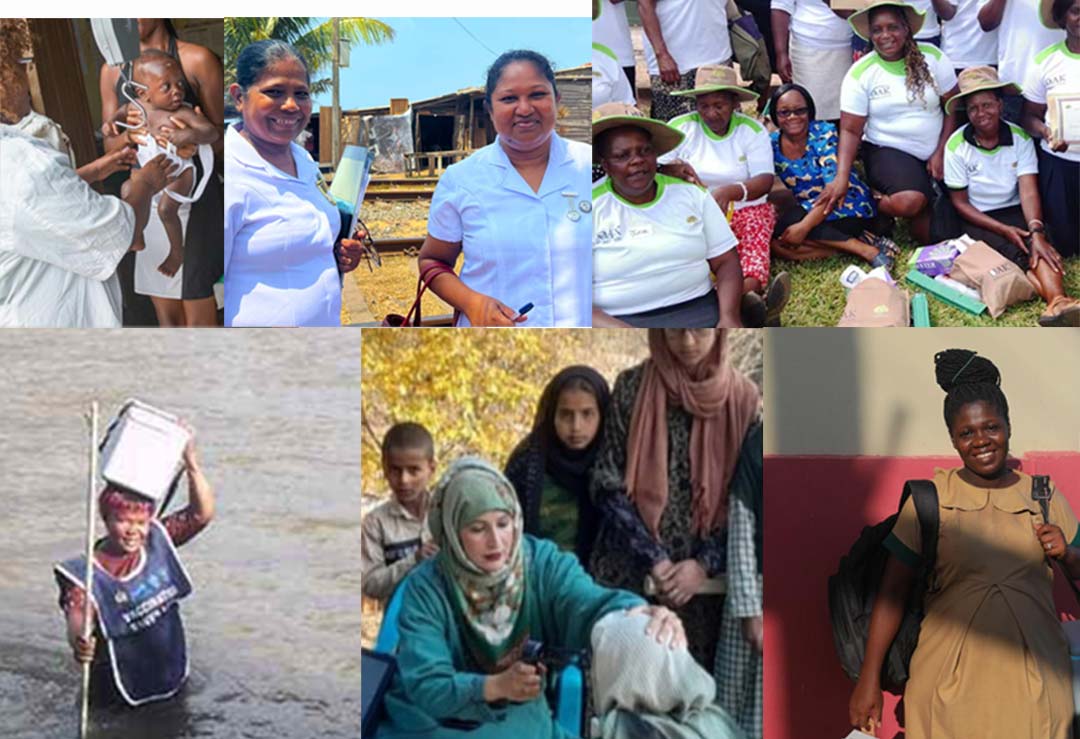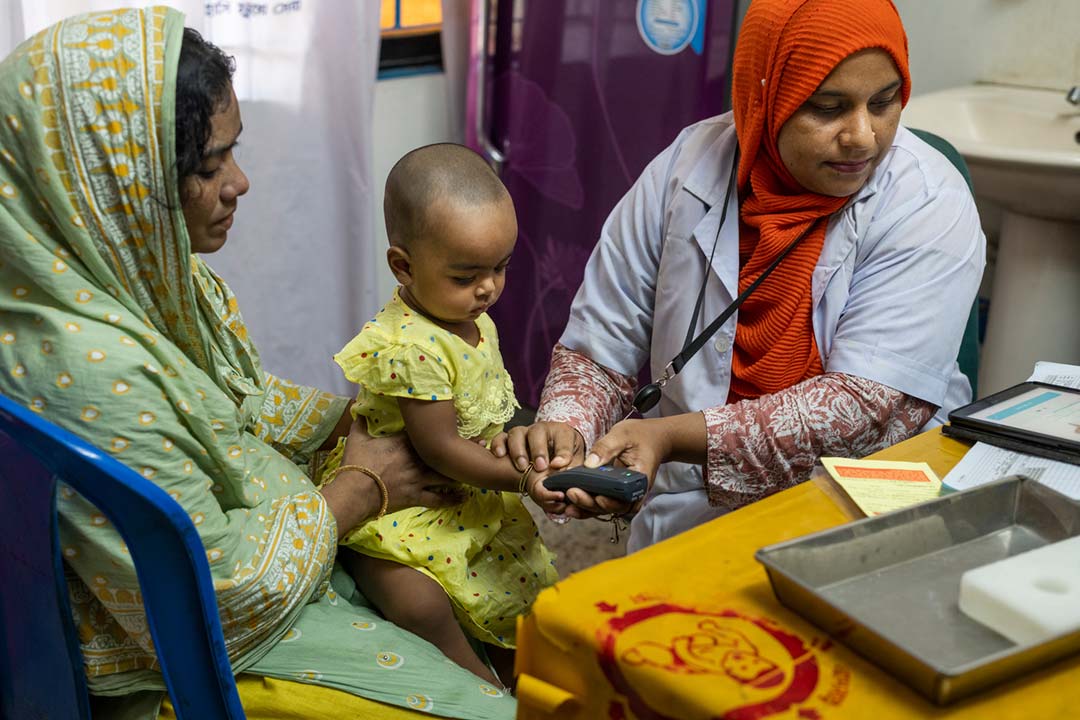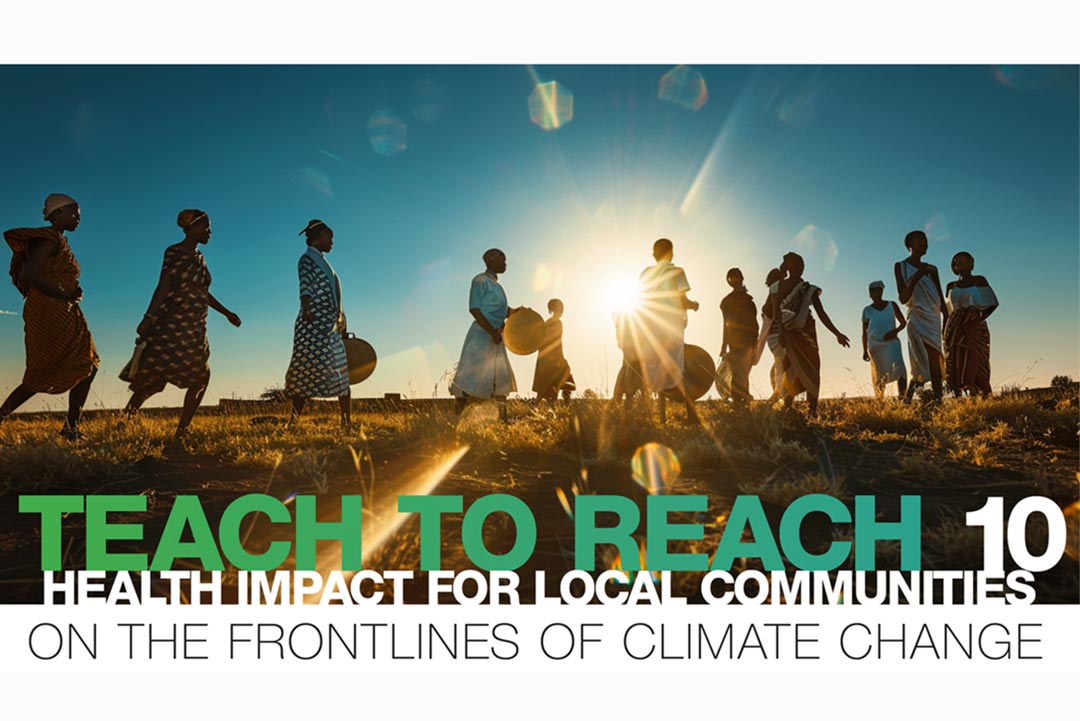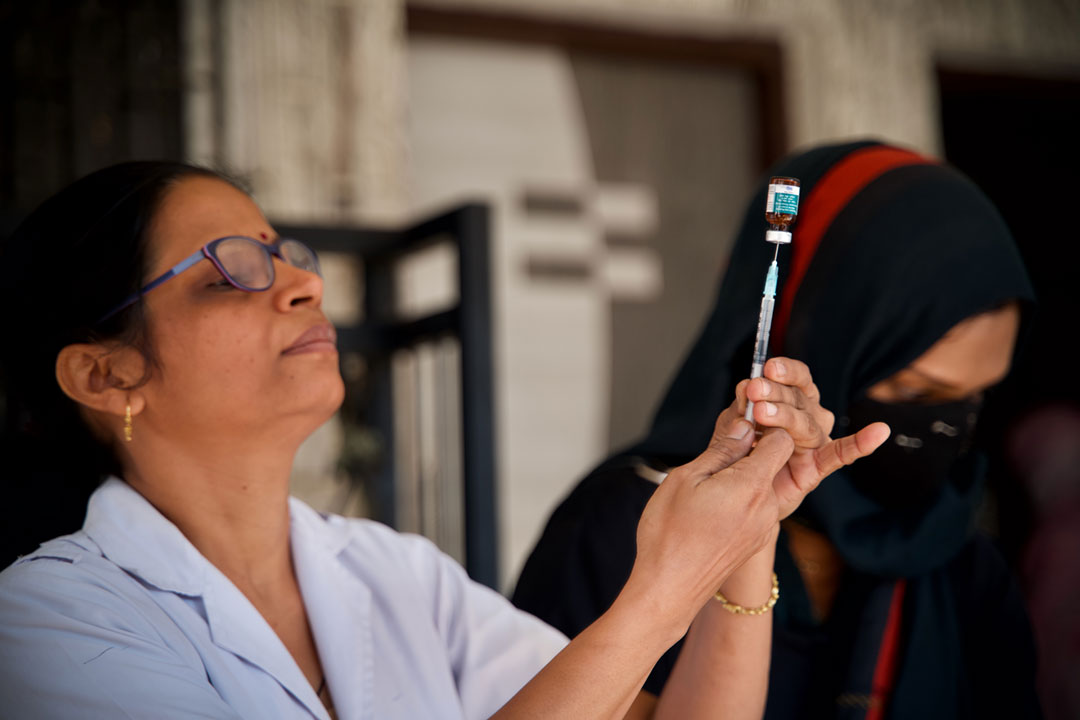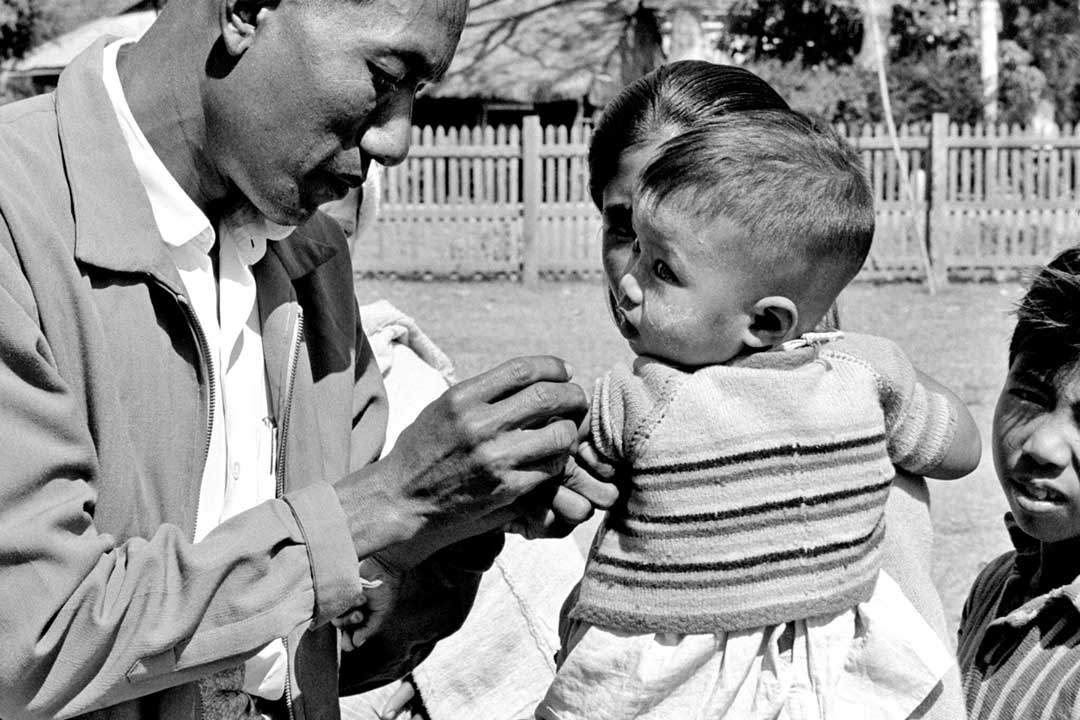How COVID-19 – and money, politics and colonial history – rattled trust in an Ebola vaccine in the DRC
An ethnographic study gets below the surface of false rumours that swirled in North Kivu after the pandemic landed, finding valuable insights beneath factual inaccuracy.
- 8 December 2022
- 7 min read
- by Maya Prabhu

In the Democratic Republic of Congo's North Kivu province, the Ebola vaccine trial was six months in when it was suspended. It was April 2020, and a second epidemic had hit. The researchers managing the trial worried that this new virus, COVID-19, could spread in the clinics where the Ebola jabs were being administered.
“Rumors are rich vehicles for articulating social and political anxieties,”
Four more months would pass before Ebola vaccination recommenced. By then, DRC's tenth Ebola outbreak – which lasted from August 2018 to June 2020 and killed a total of 2,287 people – would officially be over.
At the point of suspension, only 9,560 of the 20,000 participants in the trial had so far received both doses of the two-part Johnson & Johnson immunisation. For the remainder, the scheduled 56-day gap between doses one and two would stretch. That was, medically speaking, no problem: previous studies on the vaccine showed a longer pause between doses should compromise neither efficacy nor safety.
The fact that the Ebola outbreak had ended was also no impediment to completing the trial in Goma, because the trial relied on immunology and not infections for its results.
But something potentially consequential had shifted since COVID-19's arrival, scholars Myfanwy Vaughan James and Shelley Susan Lees find in a fascinating study published in the journal Medical Anthropology: perceptions of the trial, even of medical research in general.
Rumour
Distrust of the Ebola response didn't dawn when COVID-19 arrived. In North Kivu, which has been a locus of conflict and insecurity for the last 25 years, there were attacks on Ebola treatment centres and instances of hostility towards healthcare workers.
But with COVID-19, the nature and spread of suspicion changed. In April 2020, a pair of French doctors suggested on TV that a COVID-19 vaccine should be tested on Africans. Critiques of Western biomedical colonialism – outcry over the historic and prospective use of Africans as "guinea pigs" – flamed into new life. DRC's Minister of Human Rights responded publicly, declaring that "Africa will no longer serve as a testing ground as used to be the case during the colonial or slavery days."
In North Kivu, a new rumour began to spread that in the Ebola trial, the second dose of vaccine had been secretly swapped out for an experimental COVID-19 jab.
Via ethnographic observation at vaccine clinics, as well as interviews with trial participants, provincial politicians, traditional medical practitioners, civil society activists and health authorities, as well as with other North Kivu residents who did not participate in the trial, James and Lees delve into this shift in perception.
Ultimately, they find that it "illustrates the difficulties of maintaining participants' trust, when circumstances dictate protocol alterations mid-trial. They add: "More than 75%" of trial participants would go on to receive their second dose – no conjecture is offered regarding the impact of the loss of trust on this figure.
The researchers observe, however, "Those who initially trusted the scientific rationales behind specific trial procedures were troubled by the changed schedule for the second dose." To some, the COVID-19 jab rumour "became as convincing as other explanations."
Have you read?
Untrue – but not necessarily unreasonable
Vital to the researchers' analysis is that this and other rumours are, while not factual, extremely meaningful. "Rumors are rich vehicles for articulating social and political anxieties," write the authors. They are "reflections of socio-political realities and asymmetries of power"; "symbolically meaningful commentaries". And more than that – they draw power from observable, real-life events, like the switch in the trial vaccine's schedule, which unsettled "hierarchies of credibility".
"These critiques represented a call for local ownership of science as well as investment in traditional forms of medical knowledge.”
"They said 56 days, now it's already been 5 months, it's to kill us this time," one alarmed trial participant told the researchers. "I asked a question saying well, you told us not to pass 56 days or there would be problems, so will there be problems now?"
A woman working in a market near the vaccination site outlined a more elaborate belief: "People said they tell us it's an Ebola vaccine but that's not true, it's for Corona. … The objective of the vaccine is that among those who take it, in a few years some will be weak, others will be dead. So, they are in the process of killing us, step by step, because the objective of those people is to come, dominate us, and live here."
Elsewhere, the market-worker's conspiracy theory might be dismissed as simple misinformation. But dismissal would neglect how clearly the fears articulated by her claims reflect a cultural memory of the violence of Belgian colonial history – which included forced and dangerous biomedical testing – and which is recalled by persistent global racial inequities.
Said another trial participant, "because we know that Corona comes from there in Europe and America, chez les blancs, and that they have not already found a cure… That really affected peoples' attitudes toward other vaccines, like this second dose of Ebola vaccine. What are we really being injected with in the second dose? Has the COVID-19 vaccine testing already begun? Are we not already trapped in their [white peoples'] schemes?"
Colliding forces
The researchers sketch a complex picture of the confluent realities that fostered a sense of uncertainty, which in turn created an environment in which rumours and suspicion could gain traction.
There are the big, broad forces: history, global health inequity, white-Western hegemony. There are more immediate political influences, too. A January 2019 regime change, for instance, resulted in a Health Minister being side-lined from Ebola policy. That Minister responded by accusing backers of the second dose of "an obvious lack of ethics".
There were the things people in North Kivu saw with their own eyes: money, for one. "The introduction of a well-funded Ebola response (approximately $1.2 billion) into an area where basic services remain underfunded and people feel abandoned by the ruling class gave an impression that the response aimed to benefit intervenors rather than local populations," note James and Lees. There were instances of corruption. Add to that that COVID-19 had not appeared to hit as hard as had been anticipated, and you get suspicions like those articulated by one man from Goma: "[COVID] is a business, just like Ebola. The government inflates the numbers [of cases] to attract funding."
The researchers write: "Discussions about clinical research have become a space for people to discuss broader concerns about inequality and governance, which are inseparable both from long-standing local contests, as well as historical and contemporary global inequities."
Hearing calls for change
Another strand of these critical discussions orbited the question of which kind of medicine appeared to qualify as valid. In 2020, President Andry Rajoelina of Madagascar championed an "African COVID-19 cure" – a drink made from artemisia, a medicinal plant that yields a key antimalarial drug. The WHO issued warnings against the untested tonic, which Rajoelina claimed was another example of the West's condescension to Africa.
Similar perceptions were echoed by, among others, an interviewee in Majengo, North Kivu: "When it comes to health, we also have experts. I always wonder why people only believe in what comes from far away [...] Medicine always has to come from WHO, or white people, and yet we also have well-qualified people who can do important things."
"Rather than a rejection of medical research altogether, these critiques represented a call for local ownership of science as well as investment in traditional forms of medical knowledge," say the researchers.
Critical discussion around vaccine trials and COVID-19 therapies represent, the authors argue, a means of contesting global health discourses that define "some people and their knowledge as traditional and particular, rather than universal and scientific", as well as part of a popular demand for medical self-determination.
That demand, the authors point out generatively, "remains detached from contemporary discussion of 'decolonization' in global health institutions and universities".
Read more
Myfanwy Vaughan James & Shelley Susan Lees (2022) "Are You Sure It's Not the Corona Vaccine?" An Ebola Vaccine Trial During COVID-19 in DRC, Medical Anthropology, 41:5, 503-517, DOI: 10.1080/01459740.2022.2097908

